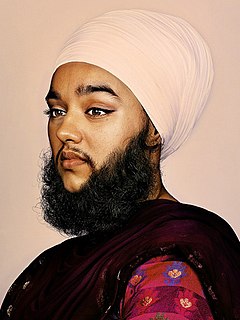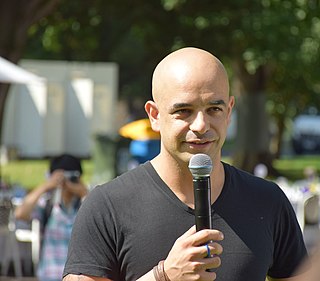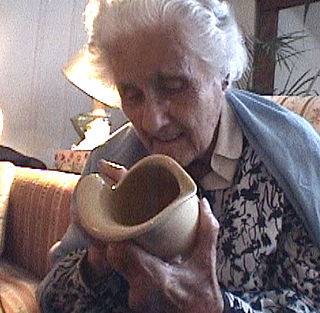A Quote by Jacques Barzun
The sole justification of teaching, of the school itself, is that the student comes out of it able to do something he could not do before. I say do and not know, because knowledge that doesn't lead to doing something new or doing something better is not knowledge at all.
Related Quotes
He misses the feeling of creating something out of something. That’s right — something out of something. Because something out of nothing is when you make something up out of thin air, in which case it has no value. Anybody can do that. But something out of something means it was really there the whole time, inside you, and you discover it as part of something new, that’s never happened before.
It's very important to distinguish between what most people in the West think about knowledge, and what the Indian concept of knowledge is. In the West the knowledge is something that is tangible, is material, it is something that can be transferred easily, can be bought and sold; or as in India real knowledge is something that is a living being - is a Vidya.
Despite popular theories, I believe people fall in love based not on good looks or fate but on knowledge. Either they are amazed by something a beloved knows that they themselves do not know; or they discover a common rare knowledge; or they can supply knowledge to someone who's lacking. Hasn't everyone found a strange ignorance in someone beguiling? . . .Nowadays, trendy librarians, wanting to be important, say, Knowledge is power. I know better. Knowledge is love.
The beauty of the unexpected and unknown, and it's certainly very tantalizing for me as an actor. Other actors can't deal with that; they want to know, but then they make choices and decisions with that knowledge because that knowledge gives them forethought, and they can think about how they want to play something that takes away spontaneity of what they could be doing.
The ultimate test of my understanding of the scriptural teaching is the amount of time I spend in prayer. As theology is ultimately the knowledge of God, the more theology I know, the more it should drive me to seek to know God. Not to know about Him but to know Him! The whole object of salvation is to bring me to knowledge of God. If all my knowledge does not lead me to prayer there is something wrong somewhere.
I think success has a downside. The more successful you get and the more out there you are in the world, the more vulnerable you are and the more you are open to hate, especially because of social media. But it also depends what you class as success, because someone could do something mean and class that as success for them. But for me, if you're doing something positive that's allowing someone to have a better wellbeing, or embrace their life more, you have to go for it, but know there's always going to be people who hate on you for doing what you're doing.
When something is new and hard and bright, there ought to be something a little better for it than just being safe, since the safe things are just the things that folks have been doing so long they have worn the edges off and there's nothing to the doing of them that leaves a man to say, That was not done before and it cannot be done again.
When preparing for a role, a month is a luxury. Sometimes you've maybe got two weeks before you start on something. So you have to learn how to do it quickly. And the longer you have a role, that it lives in your imagination, the more you're going to be able to contribute when you get on set. Because it's really about your subconscious having time to sit with the part, so you're out doing something and then something occurs to you, you know?
And if there be any addition to knowledge, it is rather a new knowledge than a greater knowledge; rather a singularity in a desire of proposing something that was not knownat all beforethananimproving, anadvancing, a multiplying of former inceptions; and by that means, no knowledge comes to be perfect.
People feel better because Donald Trump says all kinds of things no one else would say and we get certain tendencies out of our system. So if attacking immigrants, say, is a substitute for doing something worse, there's at least a scenario under which that's a better alternative than something else that might have happened.




































